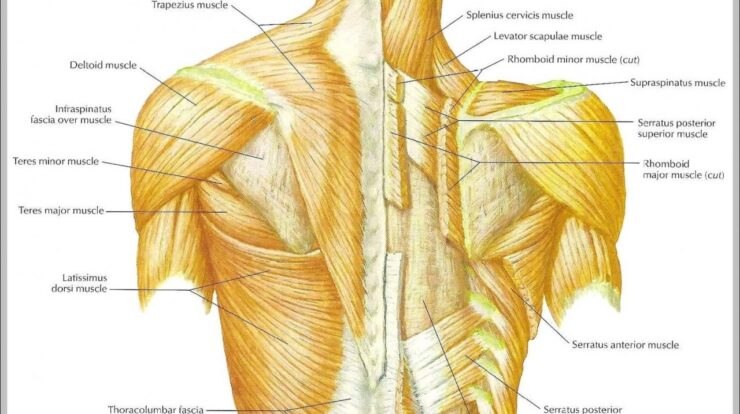
Suffering from gum disease? Don’t fret! Learn how to cure gum disease without a dentist. This guide will delve into natural remedies, home care techniques, and dietary considerations to help you restore your oral health.
Gum disease, a common problem, can lead to serious consequences if left untreated. But with the right knowledge and self-care, you can take control of your gum health and prevent further damage.
Identify Causes of Gum Disease: How To Cure Gum Disease Without A Dentist
Gum disease, also known as periodontal disease, is a common problem that affects people of all ages. It is caused by bacteria that build up on the teeth and gums, leading to inflammation and infection. If left untreated, gum disease can damage the gums and bone that support the teeth, eventually leading to tooth loss.
There are many factors that can contribute to gum disease, including:
- Poor oral hygiene
- Tobacco use
- Underlying health conditions, such as diabetes and HIV/AIDS
There are different types of gum disease, each with its own symptoms. The most common type of gum disease is gingivitis, which is characterized by red, swollen, and bleeding gums. If gingivitis is not treated, it can progress to periodontitis, which is a more serious form of gum disease that can damage the bone that supports the teeth.
The symptoms of periodontitis include:
- Receding gums
- Loose teeth
- Pus between the teeth and gums
- Pain when chewing
If you have any of the symptoms of gum disease, it is important to see a dentist right away. Early diagnosis and treatment can help prevent the disease from progressing and causing serious damage to your teeth and gums.
Natural Remedies for Gum Disease

Gum disease, a common oral health problem, can be effectively treated using natural remedies. These remedies, often derived from plants and natural ingredients, have been used for centuries to maintain oral hygiene and combat gum disease.
Natural remedies offer several potential benefits. They are generally safe, affordable, and easily accessible. Additionally, some natural remedies have anti-inflammatory and antibacterial properties, which can help reduce gum inflammation and fight bacteria that cause gum disease.
Curing gum disease without professional help is possible with some effort. Start by practicing good oral hygiene, brushing twice daily and flossing once a day. Additionally, you can try natural remedies like gargling with salt water or using tea tree oil as a mouthwash.
For more detailed instructions, visit how to cure gum disease without a dentist .
Oil Pulling
Oil pulling is an ancient Ayurvedic practice that involves swishing oil in the mouth for 10-15 minutes daily. Coconut oil is commonly used for this purpose. It is believed that oil pulling helps remove bacteria and toxins from the mouth, reducing inflammation and improving gum health.
Salt Water Rinses
Salt water rinses are a simple and effective way to reduce gum inflammation and pain. Salt has antibacterial properties that help kill bacteria and reduce swelling. To make a salt water rinse, dissolve half a teaspoon of salt in a glass of warm water and rinse your mouth for 30 seconds.
If you’re looking to cure gum disease without a dentist, there are a few things you can do. First, you can try using a mouthwash that contains chlorhexidine, which is an antibacterial agent that can help to kill the bacteria that cause gum disease.
You can also try using a toothpaste that contains fluoride, which can help to strengthen your teeth and prevent cavities. If you have severe gum disease, you may need to see a dentist for treatment. Sacramento Mecconline is a great resource for finding a dentist in your area.
They offer a variety of services, including gum disease treatment. If you’re looking for a more natural way to cure gum disease, you can try using essential oils. Tea tree oil and clove oil are both known for their antibacterial properties.
You can add a few drops of either oil to your toothpaste or mouthwash, or you can apply it directly to your gums.
Herbal Extracts
Certain herbal extracts, such as green tea extract, have been shown to have antibacterial and anti-inflammatory properties that can benefit gum health. Green tea extract can be used as a mouthwash or taken as a supplement.
Home Care Techniques for Gum Disease

Maintaining a healthy oral hygiene routine is crucial for preventing and treating gum disease. Proper oral care practices, including brushing, flossing, and using mouthwash, can effectively remove plaque and bacteria that cause gum inflammation. Additionally, adopting habits that support a healthy oral microbiome and reduce inflammation can further enhance gum health.
Gum disease is a common problem that can lead to serious health issues if left untreated. While it’s important to see a dentist for regular checkups and cleanings, there are some things you can do at home to help prevent and treat gum disease.
For more information, check out how to cure gum disease without a dentist .
Here’s a comprehensive home care routine that can help manage gum disease:
Brushing Techniques
- Brush your teeth twice a day with a soft-bristled toothbrush.
- Use a fluoride toothpaste to strengthen tooth enamel and prevent cavities.
- Brush gently in circular motions, covering all surfaces of your teeth.
- Spend at least two minutes brushing each time.
Flossing Techniques
- Floss your teeth once a day to remove plaque and bacteria from between your teeth.
- Use a gentle sawing motion to guide the floss between your teeth.
- Curve the floss around the base of each tooth to remove plaque and bacteria.
Mouthwash Techniques
- Use an antibacterial mouthwash to kill bacteria and reduce inflammation.
- Swish the mouthwash for 30 seconds, ensuring it reaches all areas of your mouth.
- Do not rinse your mouth with water after using mouthwash, as it can dilute its effectiveness.
Maintaining a Healthy Oral Microbiome
- Eat a balanced diet rich in fruits, vegetables, and whole grains to support a healthy oral microbiome.
- Limit sugary foods and drinks, as they can feed harmful bacteria in your mouth.
- Drink plenty of water to stay hydrated and wash away bacteria.
Reducing Inflammation
- Avoid smoking, as it can damage your gums and increase inflammation.
- Manage stress, as it can contribute to inflammation throughout the body, including your gums.
- Get regular dental checkups and cleanings to remove plaque and tartar buildup.
Dietary Considerations for Gum Disease
Maintaining good gum health requires a balanced diet. Certain foods can contribute to gum disease, while others may help prevent or even reverse it. Understanding the role of nutrition in gum health can help you make informed choices to support your oral hygiene routine.
Gum disease is a common problem that can lead to serious health issues if left untreated. While it’s always best to see a dentist for professional treatment, there are some things you can do at home to help cure gum disease without a dentist.
Learn more about how to cure gum disease without a dentist, including natural remedies and lifestyle changes that can help improve your oral health.
A healthy diet rich in vitamins, minerals, and antioxidants is crucial for overall health, including gum health. A deficiency in essential nutrients can weaken the immune system, making it more susceptible to gum disease.
Recommended Foods for Gum Health
- Fruits and vegetables:Rich in vitamins, minerals, and antioxidants that help fight inflammation and strengthen the immune system.
- Lean protein:Provides amino acids necessary for tissue repair and maintenance.
- Dairy products:Contain calcium and vitamin D, essential for strong teeth and bones.
li> Green tea:Contains antioxidants that have antibacterial and anti-inflammatory properties.
Foods to Avoid or Limit for Gum Health
- Sugary foods and drinks:Feed bacteria that cause plaque and tartar buildup.
- Processed foods:Often high in unhealthy fats, sodium, and sugar, which can contribute to inflammation.
- Sticky foods:Can stick to teeth and provide a breeding ground for bacteria.
- Acidic foods:Can erode tooth enamel and weaken gums.
Supplements for Gum Health, How to cure gum disease without a dentist
- Vitamin C:Essential for collagen production, which is a protein that supports gum tissue.
- Vitamin D:Supports immune function and bone health.
- Omega-3 fatty acids:Have anti-inflammatory properties.
| Food | Vitamin C (mg) | Vitamin D (IU) | Omega-3 Fatty Acids (g) | Impact on Gum Disease |
|---|---|---|---|---|
| Broccoli | 89 | 0 | 0.1 | Good source of vitamin C |
| Salmon | 0 | 402 | 2.3 | Good source of vitamin D and omega-3 fatty acids |
| Orange | 70 | 0 | 0 | Good source of vitamin C |
| Milk | 0 | 125 | 0 | Good source of vitamin D |
| Nuts | 0 | 0 | 1.5 | Good source of omega-3 fatty acids |
By incorporating these dietary considerations into your routine, you can support your gum health and reduce the risk of developing gum disease. Consult with a healthcare professional or registered dietitian for personalized advice on how to optimize your diet for optimal oral hygiene.
When to Seek Professional Help

Gum disease can often be managed with home care and natural remedies, but there are certain signs and symptoms that indicate the need for professional dental care.
Gum disease can be a real pain, but there are ways to cure it without a dentist. You can try natural remedies like oil pulling or using a saltwater rinse. If those don’t work, you can also try over-the-counter treatments like antibiotics or antiseptics.
For more information on how to cure gum disease without a dentist, check out this article: How to Cure Gum Disease Without a Dentist .
Regular dental checkups and cleanings are crucial for maintaining gum health. During these appointments, your dentist will examine your gums for signs of inflammation, bleeding, or recession. They will also clean your teeth and remove any plaque or tartar buildup that can contribute to gum disease.
Treatment Options
If you have gum disease, your dentist may recommend one or more of the following treatments:
- Scaling and root planing:This is a deep cleaning procedure that removes plaque and tartar from below the gum line.
- Antibiotics:These medications can be used to treat gum infections.
- Surgery:In severe cases, surgery may be necessary to remove diseased gum tissue and bone.
The type of treatment that is right for you will depend on the severity of your gum disease.
Closing Notes
Remember, maintaining good oral hygiene and seeking professional help when necessary are crucial for long-term gum health. By following the tips Artikeld in this guide, you can effectively combat gum disease and enjoy a healthy, radiant smile.
Essential Questionnaire
Can I cure gum disease without seeing a dentist?
While home remedies and self-care can help manage gum disease, it’s essential to seek professional dental care for proper diagnosis and treatment, especially in advanced stages.
What are the most effective natural remedies for gum disease?
Oil pulling with coconut oil, salt water rinses, and herbal extracts like green tea or myrrh have shown promising results in reducing inflammation and improving gum health.
How often should I brush and floss to prevent gum disease?
Brush your teeth twice a day and floss at least once daily to remove plaque and bacteria that can lead to gum disease.
What foods should I avoid if I have gum disease?
Limit sugary foods, processed snacks, and sticky candies, as they promote bacteria growth and inflammation.
When should I seek professional help for gum disease?
If you experience persistent bleeding, swelling, or pain in your gums, seek professional dental care promptly to prevent further complications.





